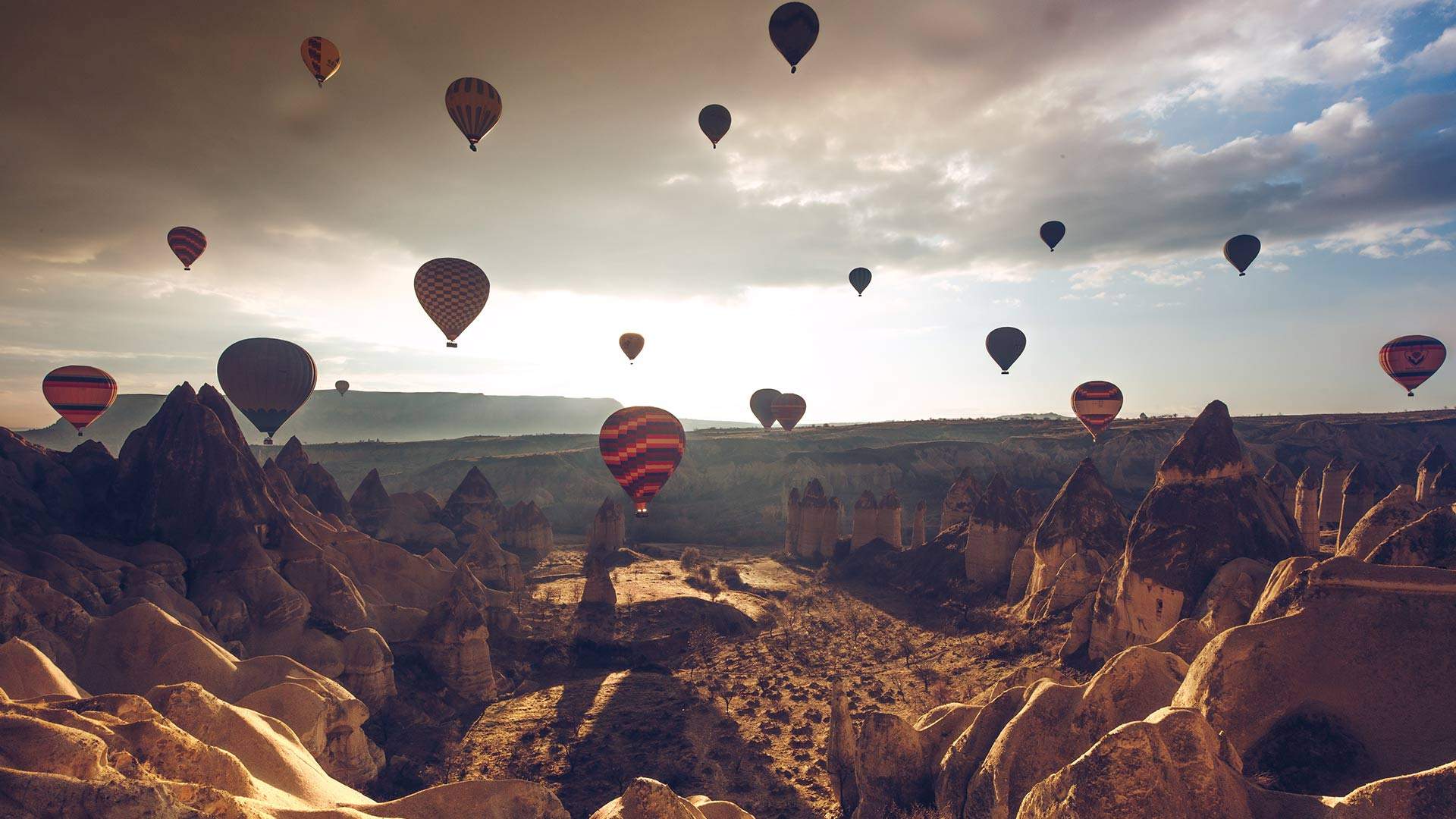What's the Future of Travel? Find Out From the Best in the Business
The way we travel is changing — and it's becoming more evident every single day.
in partnership with
As the tourism industry has undergone a pretty massive shake-up in the last few years, with jet-setting becoming increasingly accessible and technology only making it easier to see the world, it's time to figure out what's best for the industry and how it can meet the needs of everyone.
From December 7 to 8, REMIX Sydney Summit 2017 will host more than 100 industry leaders across cultural institutions, technology start-ups, policymakers and media visionaries. And at this year's event, the discussion of cities is high on the agenda, as some of our favourite destinations look for ways to bring in tourism dollars, all while keeping the locals happy.
Finding a solution isn't easy, but to try and make sense of it all, Remix Summit will host Future Tourism — Embracing a Changing Traveller. This panel discussion will present perspectives from Airbnb's ANZ Country Manager Sam McDonagh, Lonely Planet's Director of Global Communications Laura Lindsay, Sydney Opera House's CMO Christina Erskine, the ABC's Big Ideas Presenter Paul Barclay and our very own Rich Fogarty, founder of Concrete Playground.
To get you up to scratch on what's pushing the travel industry forward, and some of the growing pains it faces, we have a word with some of the esteemed panellists below.
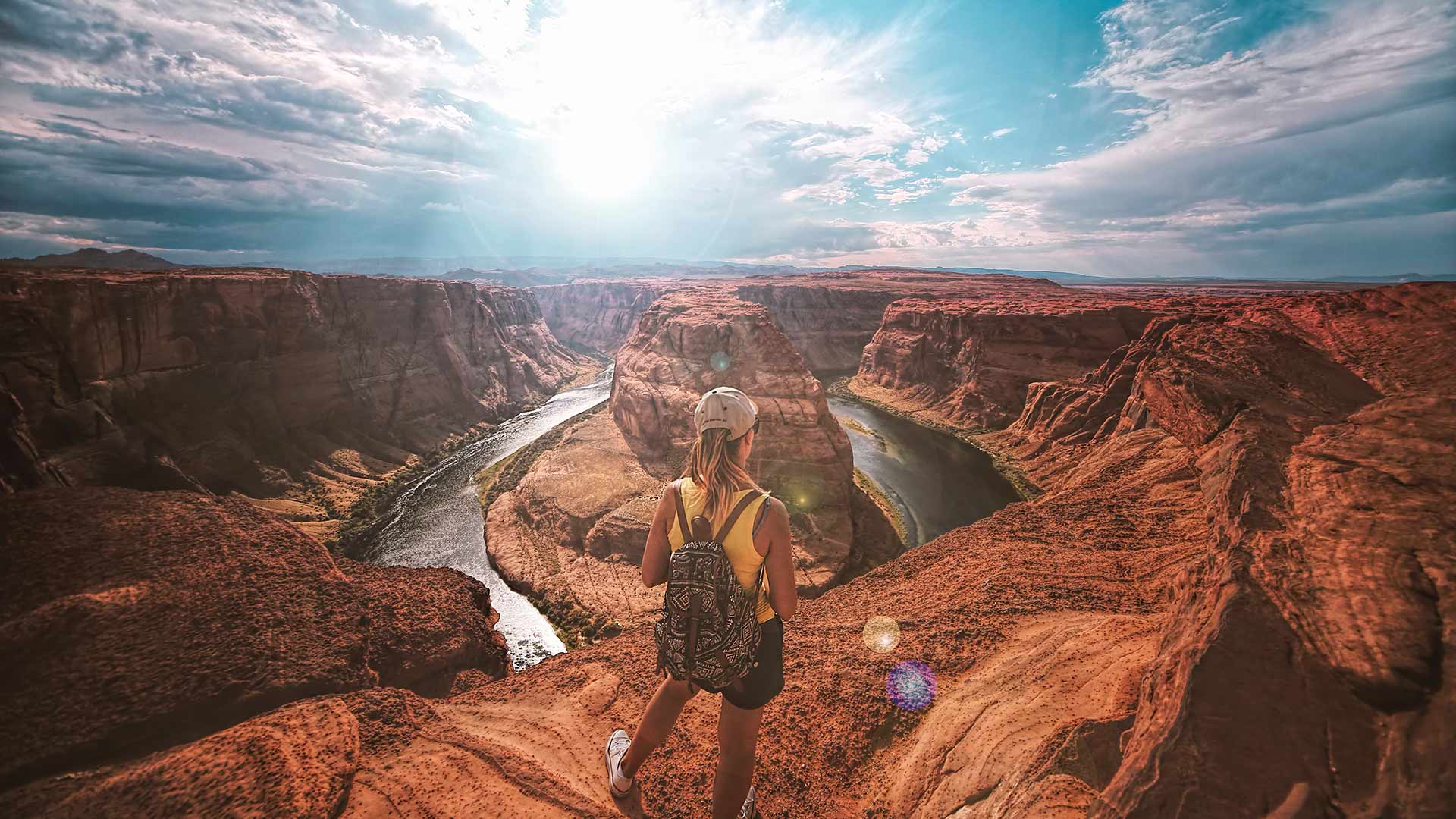
Hiking Horseshoe Bend, Arizona.
What are some of the most exciting developments in cultural tourism?
Sam McDonagh: Airbnb is at the cutting edge of innovation when it comes to tourism and travel. The increasing trend we are seeing is that Airbnb travellers want to experience the places they are visiting in a deeper and more authentic way... Airbnb Experiences — local activities crafted and led by local people — are now available in 40+ cities across 26 countries, and in every continent except Antarctica. These people-powered travel activities are addressing an opportunity in the market for guests to live like locals, expanding Airbnb's offering beyond the homes and neighbourhoods where people can choose to stay, and into the local activities people can choose to do when they get there.
Laura Lindsay: It is really exciting to see how travel is becoming more accessible than ever... Travel is a great way for people to appreciate other cultures and it's really encouraging to see that international travel is growing, alongside an increased awareness of the need for sustainability. At Lonely Planet, we are always encouraging travellers to broaden their horizons to discover new destinations and experiences — close to home and further afield. The growth in accessibility of many destinations around the globe should help with growing tourism numbers in a sustainable way and something that recommendations for lesser known destinations can help with.
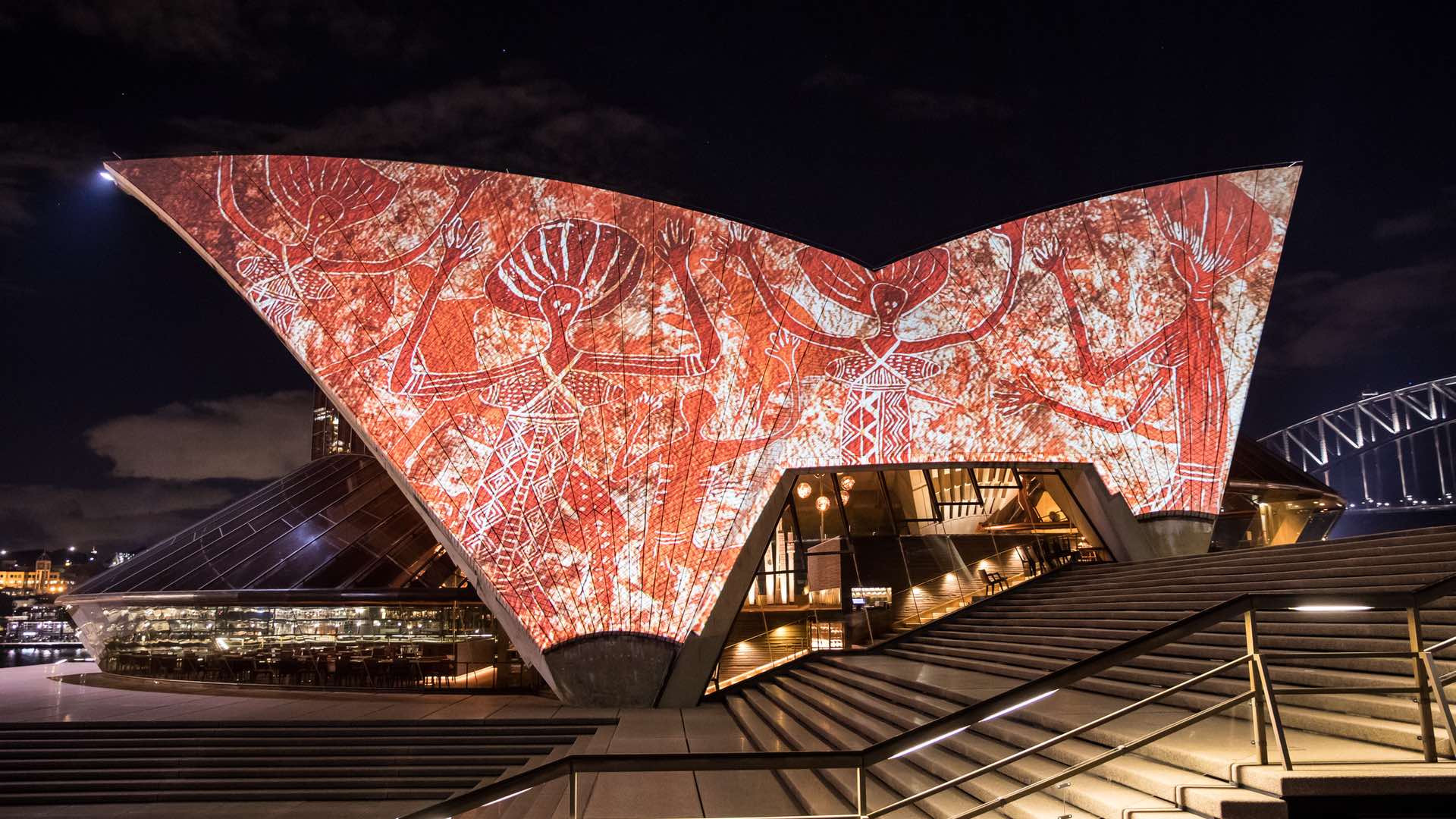
Badu Gili at the Opera House.
Christina Erskine: I'm most excited by experimental artistic collaborations that lead you to discover an unexpected city, space or community. Immersing yourself in niche pockets of a culture and genuinely connecting with locals is energising and uniting, particularly now. Banksy's wild Walled Off Hotel in Palestine, Hobart's alt-culture festival Dark Mofo or the now well-established — but no less extraordinary — immersive experience Sleep No More in NYC all do the same thing for me: engage my senses, provoke conversation and challenge perceptions about a culture.
At the Sydney Opera House, we strive to reimagine experiences that live up to the promise of the building. Whether it's Badu Gili that shares ancient First Nations stories through nightly sunset projections onto our sails or our backstage tours which draw back the curtain on the inner-workings of this world-famous performing arts centre and World Heritage-listed architectural masterpiece.
Rich Fogarty: Companies like Cool Cousin, Airbnb and Tinder make connecting with locals quicker and easier than ever before. This means that your experiences on the ground are more authentic and long-lasting because you're not just making memories, but friendships, too. This gives both locals and travellers a greater sense of community, belonging and connectedness, which can only make the world a better, happier place. Those connections that technology can now expedite for us will hopefully make us more tolerant, empathetic and open-minded as a global community. You rarely meet a well-travelled bigot.
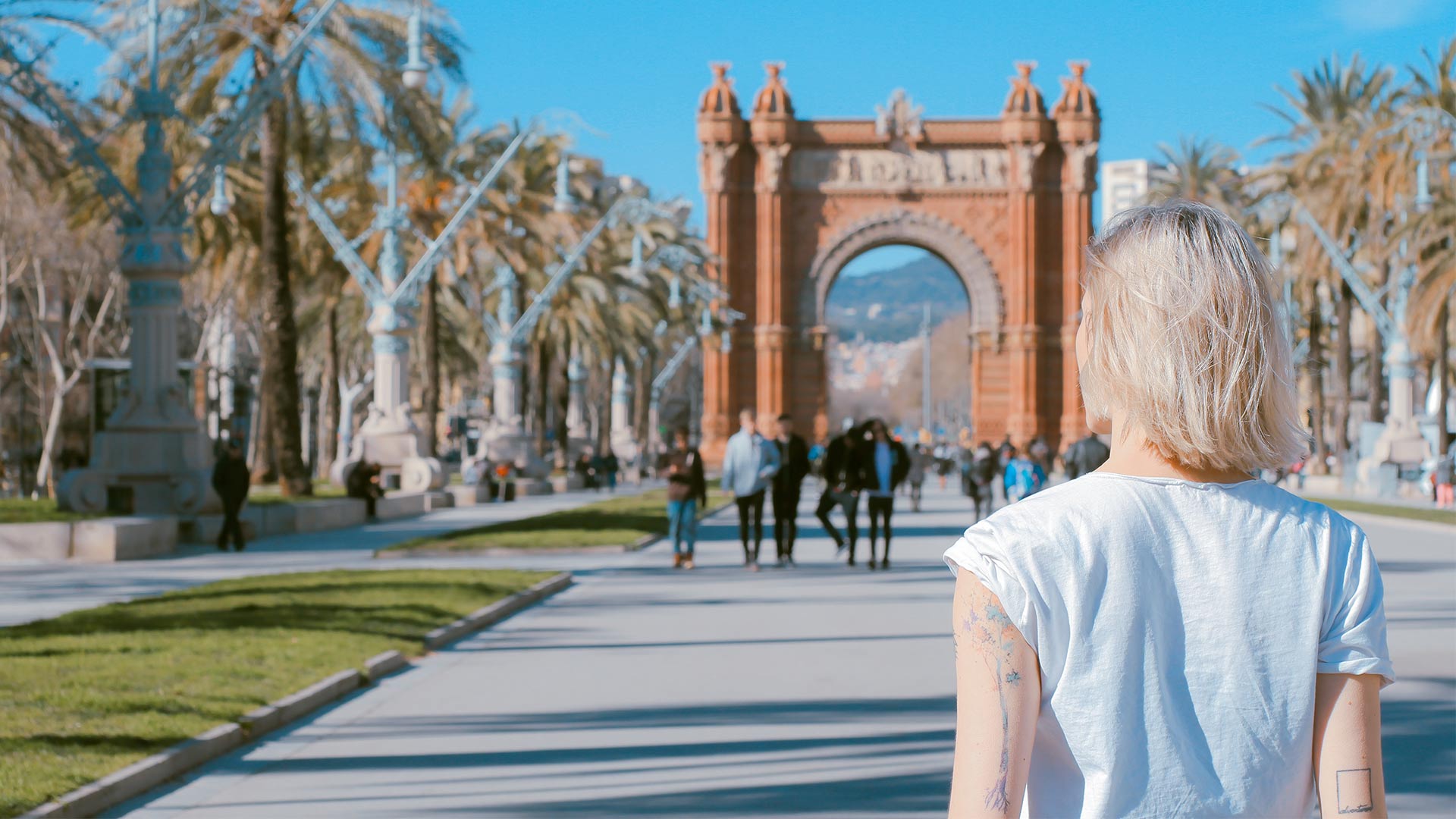
Arc de Triomf in Barcelona.
Anti-tourist sentiments are growing in places like Berlin, Barcelona and others — is there an ideal way to balance the needs of locals and the wants of tourists?
Sam: We believe that locals and tourists can very happily co-exist, and the home-sharing community of Airbnb is a great example of this. There are of course infrastructure challenges that do occur in popular tourist destinations all around the world — whether that's between Christmas and New Year in Lorne, Victoria where the community sees a spike in visitors during the holiday period, or in Barcelona, Spain where the population is 1.6 million but they receive more than eight million tourists each year. So, of course, there will be challenges on the accommodation front. Specifically in Barcelona we've seen phenomenal growth in Airbnb Experiences — giving locals an opportunity to welcome tourists to their wonderful city, share their passions and interests with them and at the same time make a little extra cash.
Laura: Each city is different and experiencing a unique set of challenges, but it's vital that there is a dialogue between businesses, governments and travellers to ensure that travel is managed in the most responsible way possible. Context is key. Yes, there is an increasing number of reports of over-tourism, but stories of content tourists and business owners don't sell papers or get clicks. It is important to remember that travel is about more than cruise ships; there are millions of genuine and mutually beneficial interactions happening all over the globe as a result of travel. The travel industry needs to help encourage balance and smart solutions — like Peru's limited ticketing for Machu Picchu to ensure that much-loved tourism hotspots aren't loved to death.
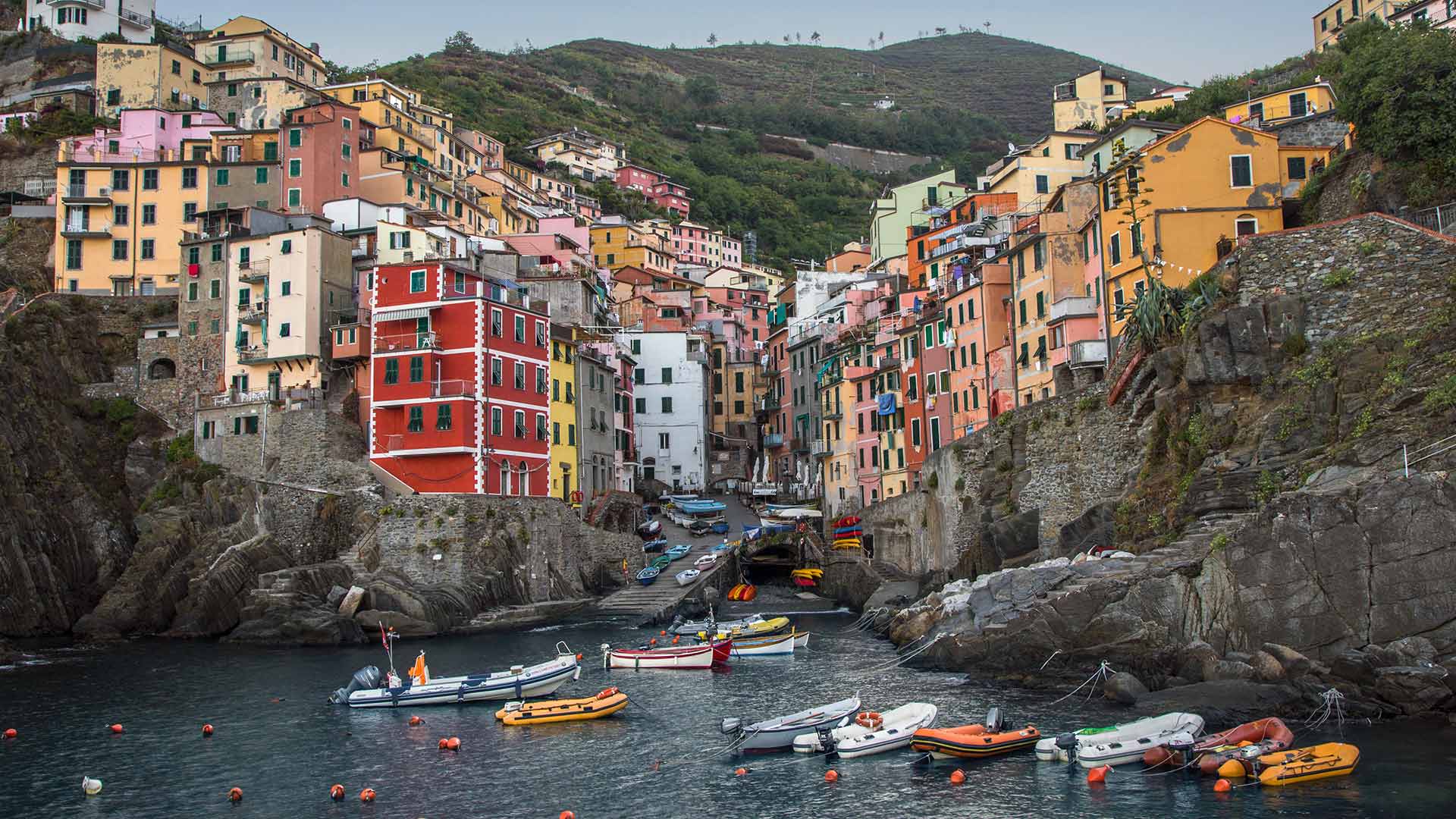
Cinqe Terre, Italy.
Christina: It's important for destinations to focus on sustainable growth and maintaining close, consultative relationships with their local communities to create experiences that complement the needs of locals and visitors. For the Opera House [one of the world's busiest performing arts centres] balance is key. In addition to putting on almost 2000 performances and hosting 500,000 tour patrons each year, the Opera House is committed to environmental and social sustainability, whether that's delivering on our Conservation Management Plan, working toward recycling 85% of our operational waste, becoming carbon neutral by 2023 or our industry-first Reconciliation Action Plan. When sustainable growth is coupled with effective marketing, the balance can start to be achieved.
Rich: It's important for the companies driving demand to collaborate with local governments on the creation of contemporary, commonsense policies and practices when it comes to nightlife and accommodation in particular. It's also on us, as travellers, to be mindful of the people and places we're visiting. Education and empathy are important drivers for building sustainable tourism practices. We may also need to get used to more places enforcing quotas like those employed on the Inca Trail and planned for the Cinque Terre coastline. It's vital that hotspots like those retain their natural beauty for generations to come.
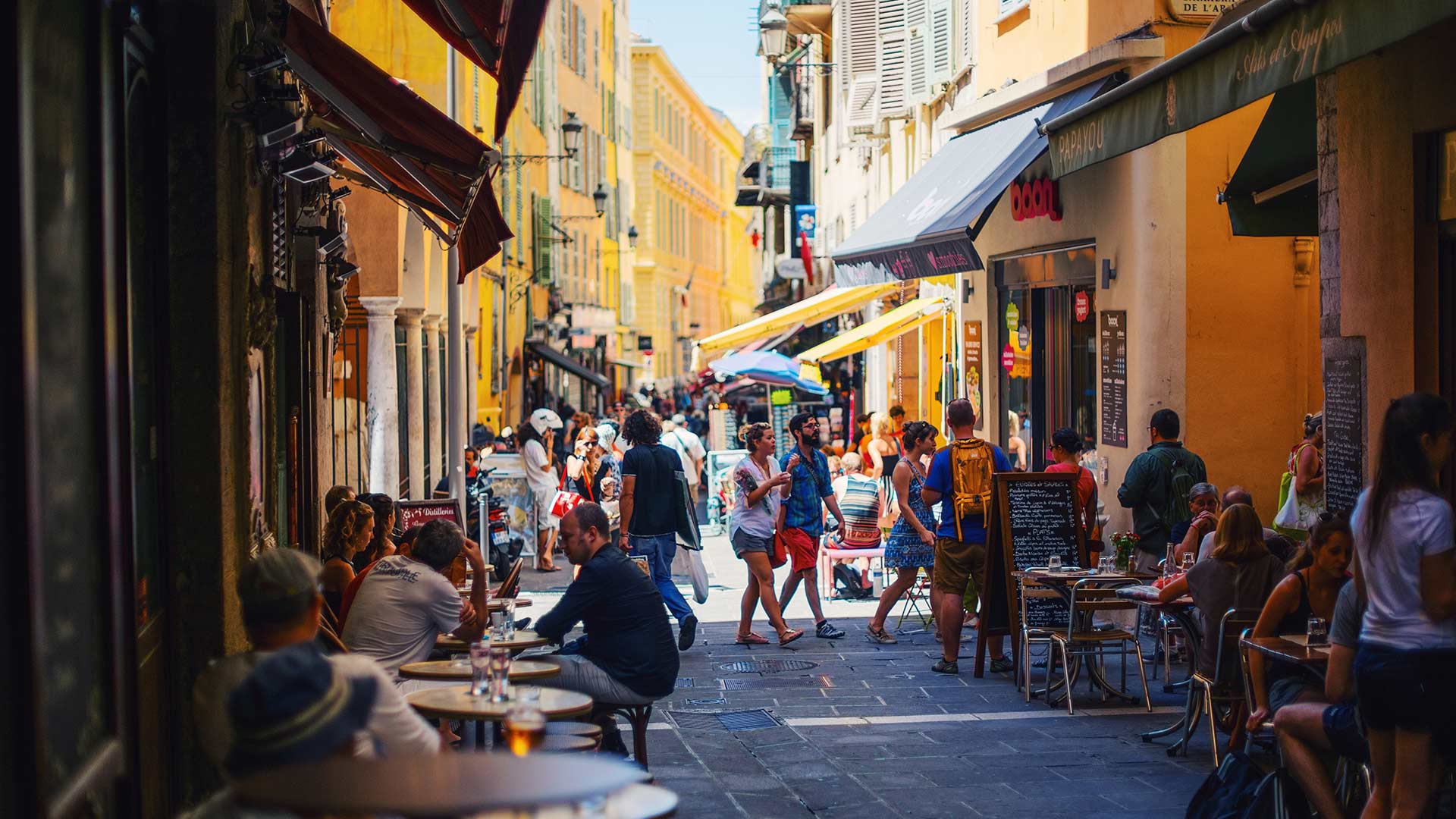
Travelling Nice, France.
What are your respective companies and organisations doing to pursue the 'future of tourism'?
Sam: At Airbnb, we believe in a world where anyone can belong anywhere in the world, and we are constantly evolving to meet the needs of our guest and host community. We want to deliver an inclusive and global end-to-end travel platform, and Airbnb Experiences — the most significant shift in the company's nine-year history — is the first step in addressing the feedback from our community about the future of tourism. We are constantly evolving and will continue to do so.
Laura: At Lonely Planet, two of our three core business values are focused specifically on this: the belief that responsible travel can be a force for good and that we should always look to broaden our horizons. By providing informed context and unbiased accounts of the way travel can impact on destinations and their communities, Lonely Planet's content can help travellers to decide how their choices will affect places and help to ensure that travel has a positive impact on the world... Lonely Planet covers 95% of the planet and we know that every destination has something to offer the traveller. We encourage the community of travellers to consider a broader range of places to visit through campaigns such as Lonely Planet's Best in Asia — our annual selection of the most timely places to visit in Asia as selected by our experts for the region; Gansu in China recently topped the 2017 list.
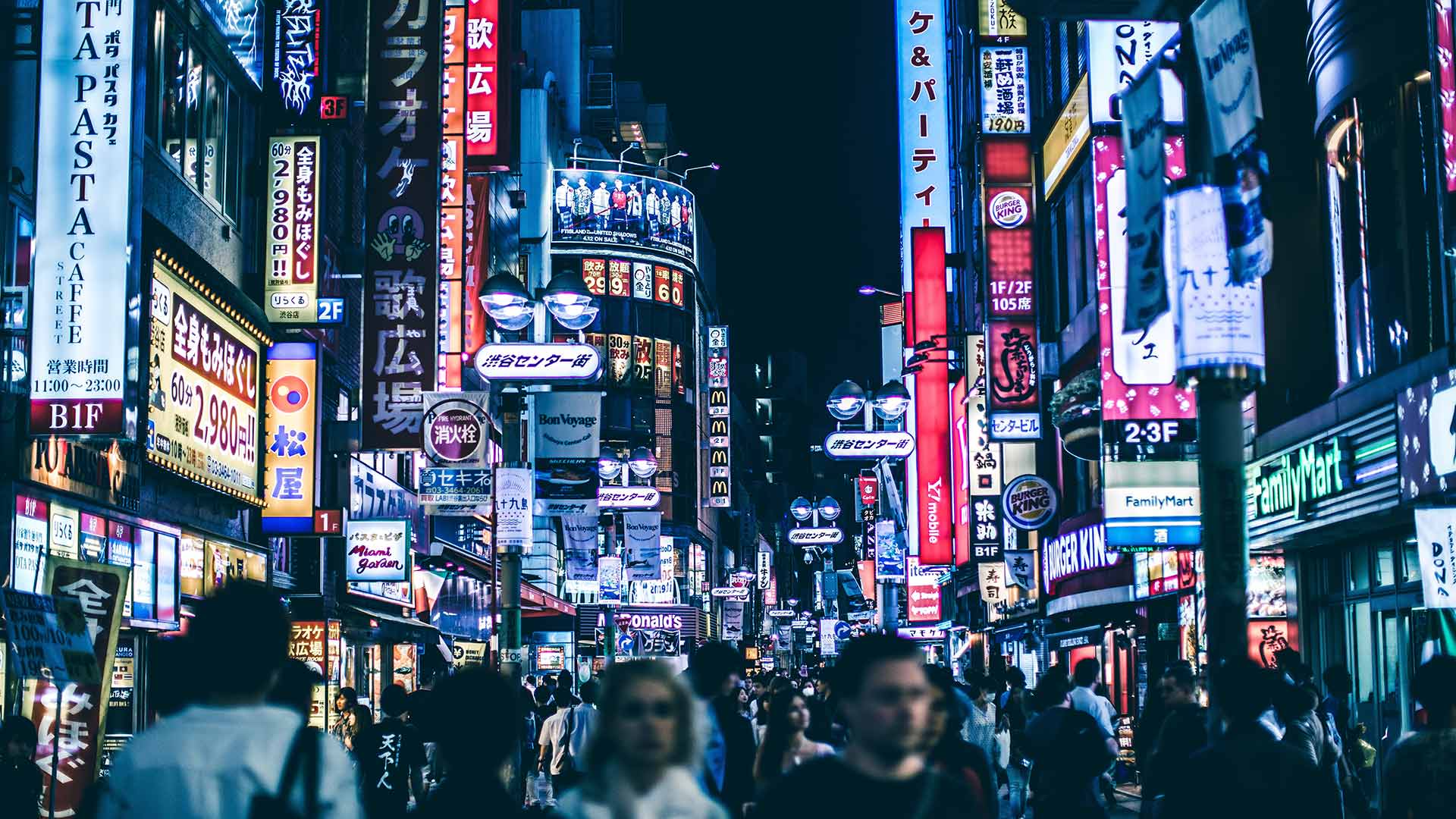
Streets of Tokyo.
Christina: We're in the midst of our Decade of Renewal: a program of major building works and organisational change to prepare the Opera House for future generations of artists, audiences and visitors ahead of our 50th anniversary in 2023. Each year it's estimated that 70% of international visitors to Australia visit the Opera House, and we anticipate that attendance will continue to grow. We're constantly evolving our tourism offerings and experiences to adapt to the changing needs and tastes of our international and local visitors, such as engaging Chinese audiences with Mandarin language tour products (along with tours in six other languages) and acknowledging foodies with our new culinary experience Taste of the Opera House.
Rich: Concrete Playground is looking at ways that we can play a bigger role in the travel process, particularly during the planning stage. We want to extend our voice and network so that we can provide connection to local voices in global cities so that our readers can uncover insights and ideas for their travels on a platform they already know and use.
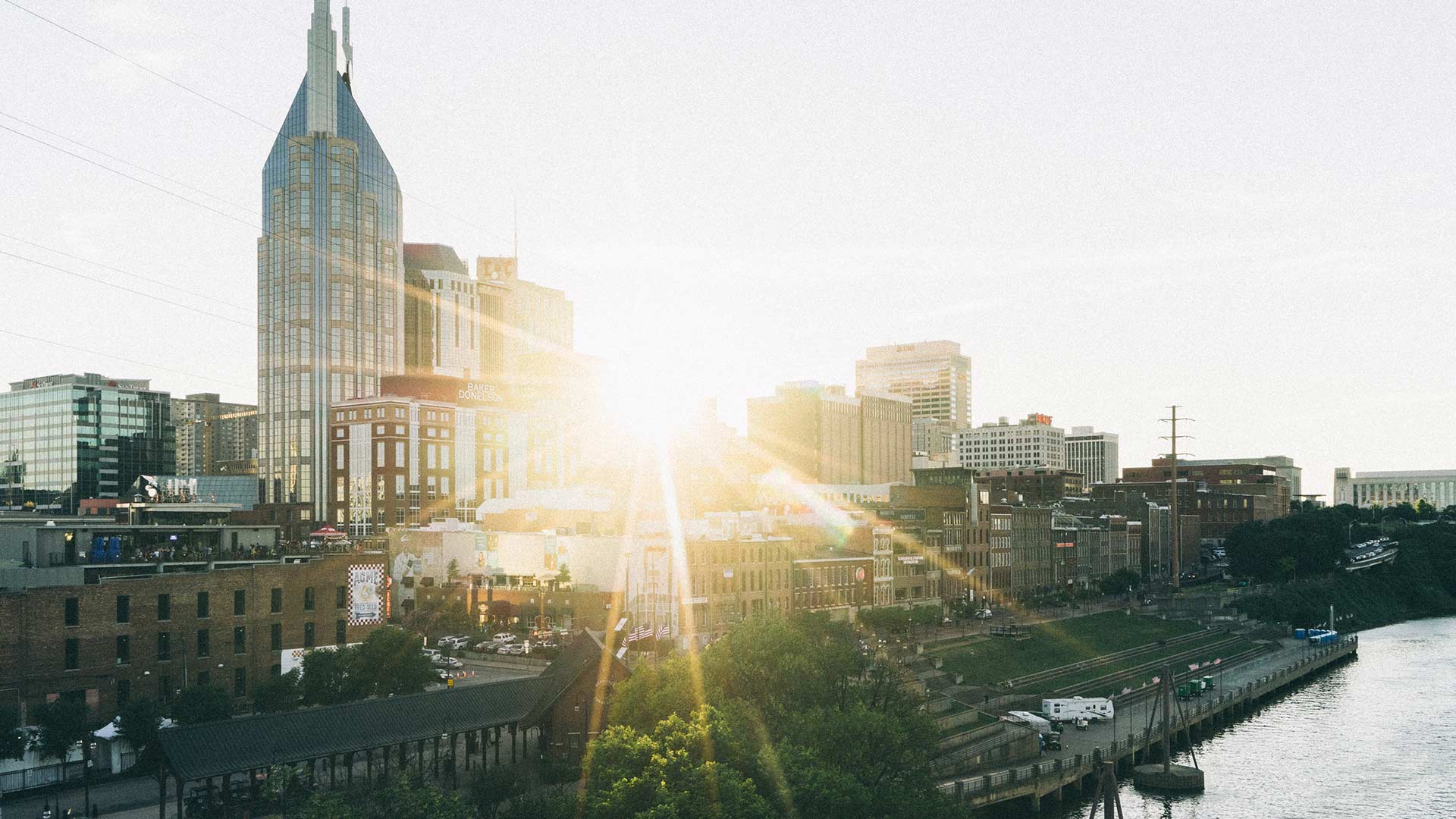
Nashville, Tennessee.
Which global city do you think has the best balance for locals and tourists?
Sam: While I might be biased, I believe Sydney is an international city that is set apart from others on a couple of fronts, including our availability of locally sourced produce and the proximity of the harbour and wonderful beaches to the CBD — you could be in a meeting in the city in the morning and do the Bondi to Bronte walk in the afternoon. These experiences are readily accessible and make Sydney one of the world's most unique global cities. With more than 50 percent of Airbnb listings in NSW located outside of traditional accommodation hotspots, we are seeing tourism expand outside Sydney and into the regions, opening access to these culturally diverse areas and having a significant economic impact on local communities.
Laura: What a question! There is no one perfect city but some cities do it very well. We just selected Seville as our number one city worldwide to visit in 2018 for a great blend of exciting events focused on the city's artistic heritage and a laidback local culture fuelled with sherry and tapas. I also spend a lot of time in Nashville for Lonely Planet, as we have an office there and the music scene is such an intrinsic part of the city's culture and one that appeals to locals and tourists alike — it's a pretty unique atmosphere.
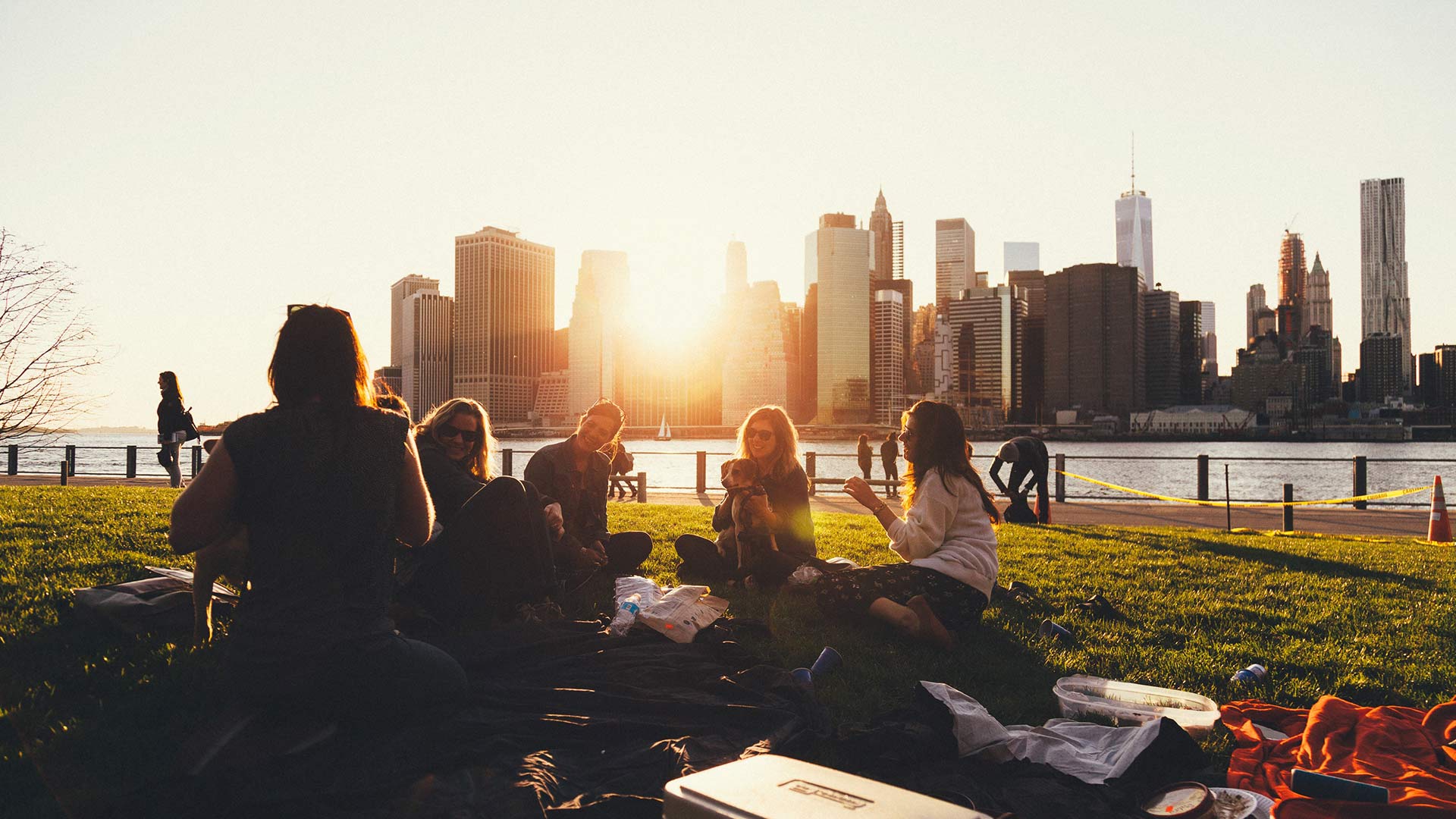
Brooklyn Bridge Park, NYC.
Christina: Cities where locals genuinely welcome and embrace the traveller, which have the support and protection of their governing tourism bodies are able to achieve the best balance. San Francisco does this well. There's a sense of energy and innovation in the city. San Francisco embraces community activism, is at the forefront of the environmental movement and celebrates people from diverse cultures and communities. It was also the lead city to partner with the Global Sustainable Tourism Criteria, pledging to harness the economic benefits of tourism without damaging the environment or harming local culture.
Rich: New York. Having been both a tourist and a local there, it's perfect for both. The city is just so big, bold and vibrant that everyone just fades into the background and becomes part of the bigger picture. Even though Manhattan itself is such a tiny bit of real estate, there's something for everyone.
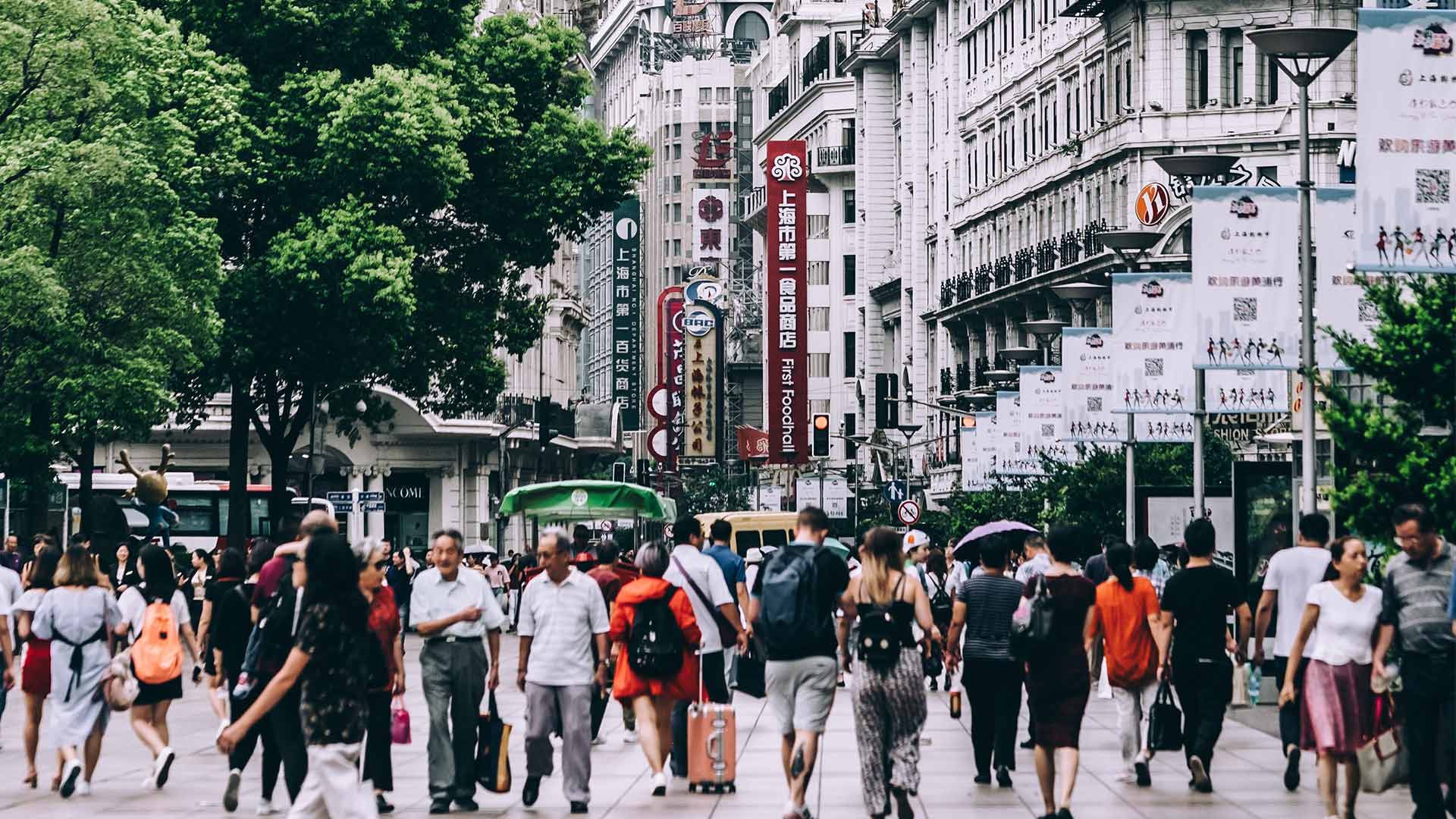
Streets of Shanghai.
What's your favourite country or city to visit and why?
Sam: As Airbnb's ANZ Country Manager, I obviously have a soft spot for Australia and New Zealand, but a very close third favourite country would be Italy — its people, food and deep cultural history. Travel around Italy is easy and you can go from the Amalfi Coast to Tuscany via Rome in just a few short hours.
Laura: Working at Lonely Planet, my answer to that question changes regularly — I love travelling and am always on the search for a new favourite! Most recently, Belize absolutely blew me away — a postcard-perfect island lifestyle, coupled with the friendliest locals I've ever met and once in a lifetime wildlife encounters with howler monkeys and manatees; Belize I think will be pretty hard to beat!
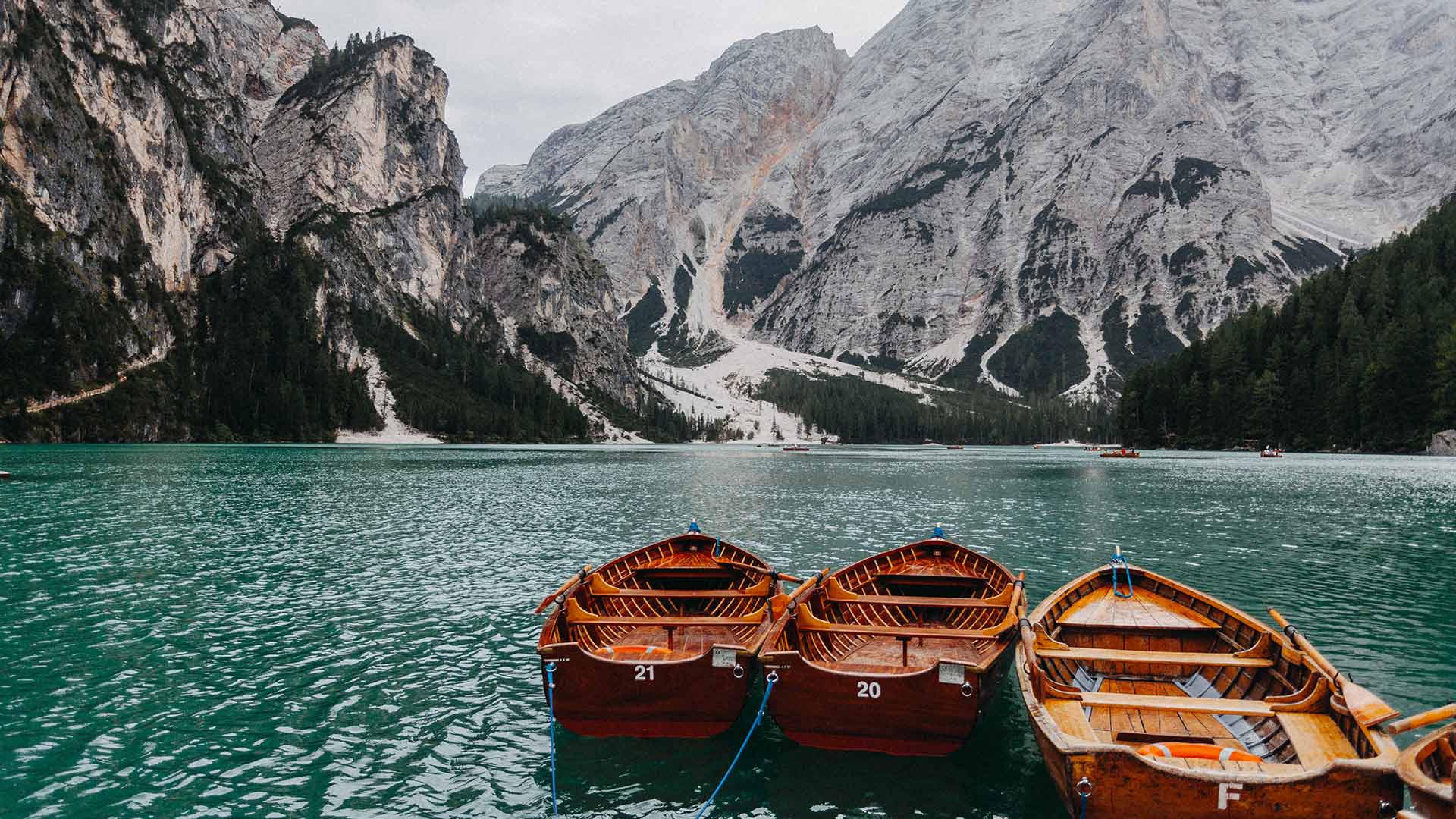
Lake Braies, Sudtirol, Italy.
Christina: Growing up as an expat kid in China in the early 90s left me with a deep fascination and curiosity for the country. The fusion of old and new world China in Shanghai, contrasted with its French colonial history, makes for a dynamic and unconventional city to explore. My Shanghai hit list includes staying at the URBN Hotel, exploring the M50 art district and photographing art deco architecture in the Hongkou district.
Rich: Italy is hard to beat. From the mountain refuges of the Sudtirol to the beach clubs of the Amalfi Coast, it's just so epic and beautiful at every turn. The food is the best in the world and the people are generally incredibly friendly. The Maldives would be a close second.
Hear more from Sam McDonagh, Laura Lindsay, Christina Erskine and Rich Fogarty at Remix Sydney Summit 2017 from December 7–8. Don't miss the Future Tourism – Embracing a Changing Traveller panel discussion on the Main Stage, December 7 at 2pm.

